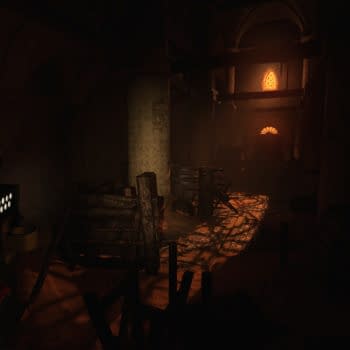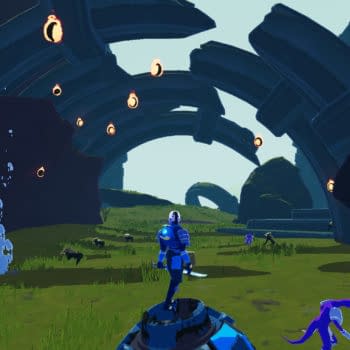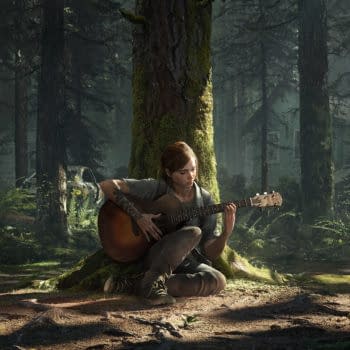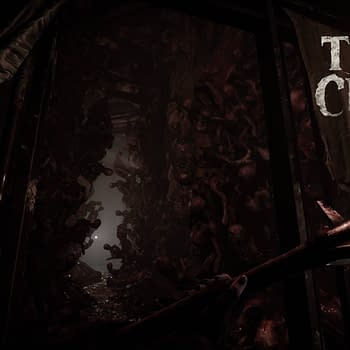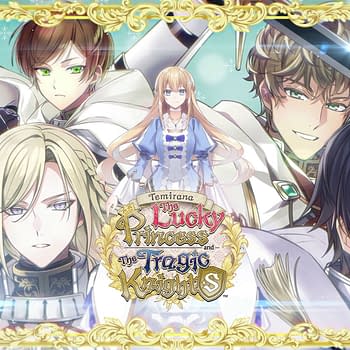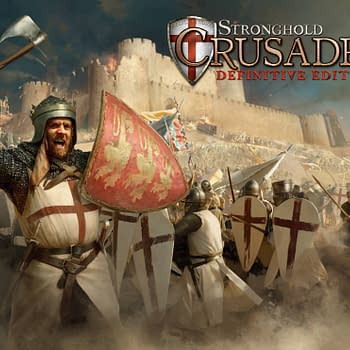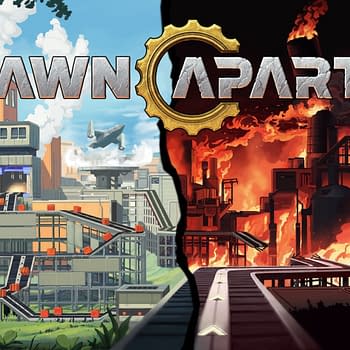Posted in: Games, Video Games | Tagged: JRPGs, mass effect, rpgs, Skyrim
How to Build a Better Role-Playing Game [Opinion]
All the different approaches, however, do not necessarily demonstrate that the genre has been moving forward. In fact, despite the staggering success of games like Skyrim, there are some building blocks that could surely be rearranged to compile a more ambitious role-playing game. I've rounded up three key components I believe would work swimmingly, and could improve upon player engagement and immersion factor – and in doing so, create a better RPG overall.
Getting To Know You
First, let's look at the factor of player interaction with that of the faithful battle party. An immediate example that comes to mind demonstrating a step in the right direction is BioWare's Mass Effect/Dragon Age stable. While both franchises aren't without their own respective flaws, they go to great lengths to offer aspiring party leads choices, back stories, and camaraderie. More specifically, character relationships – some that could obviously be expanded fully, but relationships nevertheless. Both titles assign more than a face, class, and skill set to the faces that comprise your battle party – they give meaning to your conflicts and serve as a means to ignite that explorer's spark. You wan to see Tali for who she is beyond the mask. You're moved to sympathize with Thane Krios. Your underlings become treasured – such as you completely losing it at critical junctures of Mass Effect and its sequel, where one party member must be lost, and others' loyalties demolished.
Building this type of rapport is time-consuming indeed, and also relies on the willingness of the player to mingle with their companions to unlock their secrets. But in the end it's more rewarding than a plain text conversation and "quest completed" notifications with party members as interchangeable as faceless, nameless drones. This is a mechanic that Japanese RPGs willingly delve into, though often much to players' chagrin, via drawn out cut scene or unskippable prologues, thereby forcing players to get to know the game's several personas. However, western RPGs haven't always found the sweet spot, save for BioWare's usual "leading the pack" mentality all the way back to the remarkable Star Wars: Knights of the Old Republic and Jade Empire. Ensuring that the player becomes both engrossed in the world he or she is exploring and with those around them is but one way western RPGs can continue to push the envelope of what can be done and what is being accomplished in role-playing games.
Going Where No RPG Has Gone Before
However, forging deeper relationships with party members certainly isn't the only to improve. Consider the subject matter: war, intergalactic conflict, high fantasy guilds seeking a chosen one…you name it. How many times have we traveled down the same paths?
If the Mother series can establish some largely unused themes, then so can its western counterparts. Stop rehashing the same tired orc, elf, and human banding together to combat a common threat trope and work to incorporate newer ideas. Risky selling practice? Absolutely. But imagine the possibilities that could come of it. New venues, new lore, and new settings could come together with brand new character archetypes to challenge years-old conventions, and if done correctly, could work in ways we never thought possible.
How many times have you ventured into the same dank cave to retrieve an artifact? Ridden a dragon? Rode into a town wracked with monsters or suffering from some sort of mysterious malady? I surmise you have examples for each one, and though the tried-and-true formula works to move units, a little variety is in order before the genre quickly paints itself into the corner.
Re-evaluating Choices
It's one thing to give a player choice in their adventure, but another to offer them a set of clearly-defined actions and outcomes under the guise of "free will." Branching dialogue trees have begun to stand out now more than ever, and with the exception of few titles, most equate to virtually meaningless shifts in gameplay. Some will associate you with the virtuous people of your game, and others give you a negative lilt. Some provide more experience points. Some will result in the death of a comrade or adversary, but are still minor decisions overall. In the end, they amount to little more than the pithy advancement of a plot, advancing the illusion but doing little to make it become a reality.
Why not provide conversational options that branch, but are much more ambiguous in nature so that it becomes a bit more difficult to navigate a conversation with NPCs rather than figuring the outcome in seconds? Not that L.A. Noire's system performed virtuously, with Phelps outright accusing suspects of murder rather than calling their bluff, but blurring the line between "good" and "bad" decision-making could only bolster gameplay rather than hurting it. Providing multiple options with the occasional game-changing decision that improves upon prior systems would be a great step forward in tweaking today's western RPG.
As far as making changes go, what are some ways that you would improve on the role-playing genre? Would you do away with grinding? And what of forced party member substitution? My ears are open. Let me know!


![How to Build a Better Role-Playing Game [Opinion]](https://mlpnk72yciwc.i.optimole.com/cqhiHLc.IIZS~2ef73/w:600/h:338/q:75/https://bleedingcool.com/wp-content/uploads/2019/12/skyrimbig.jpg)
